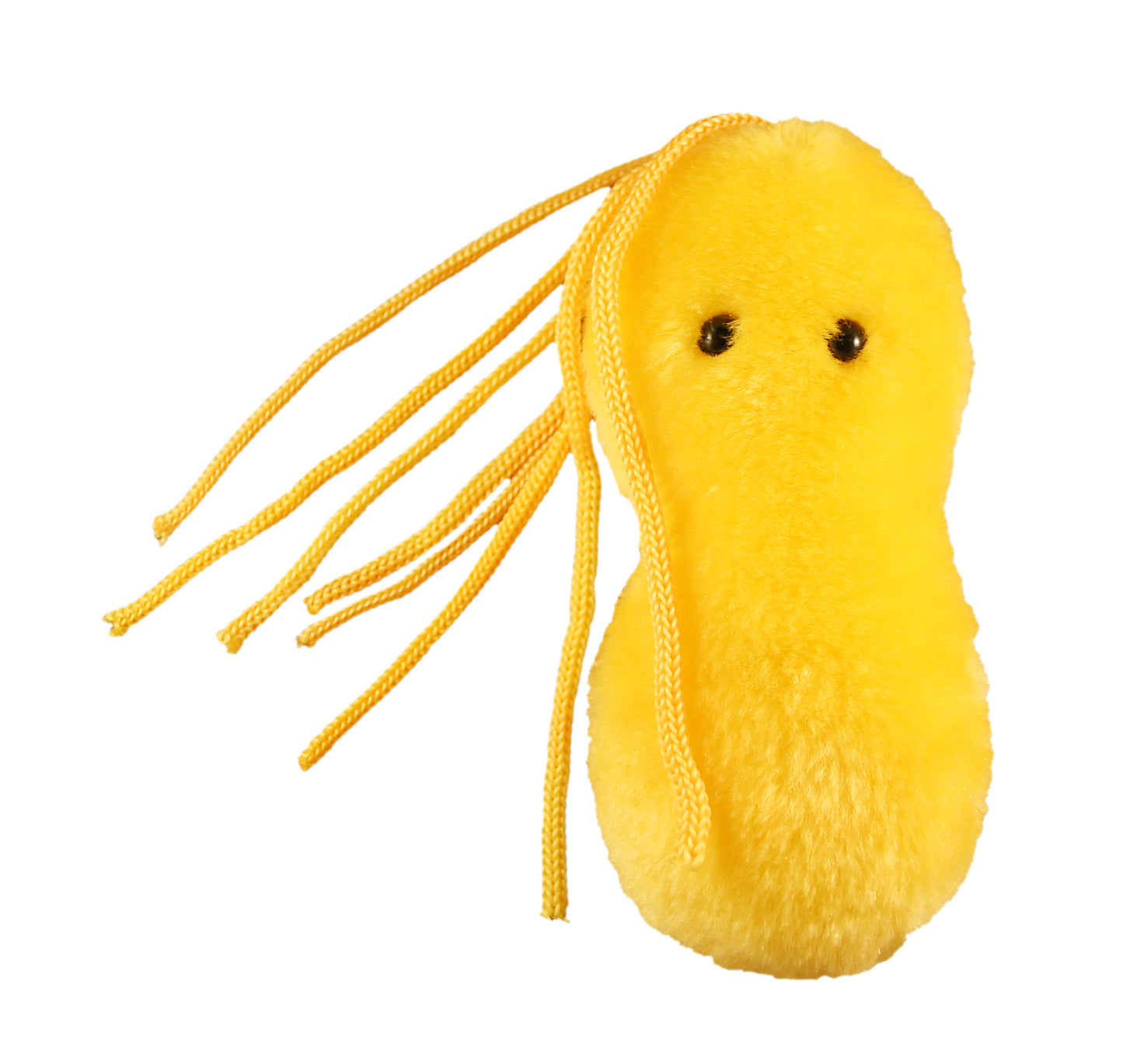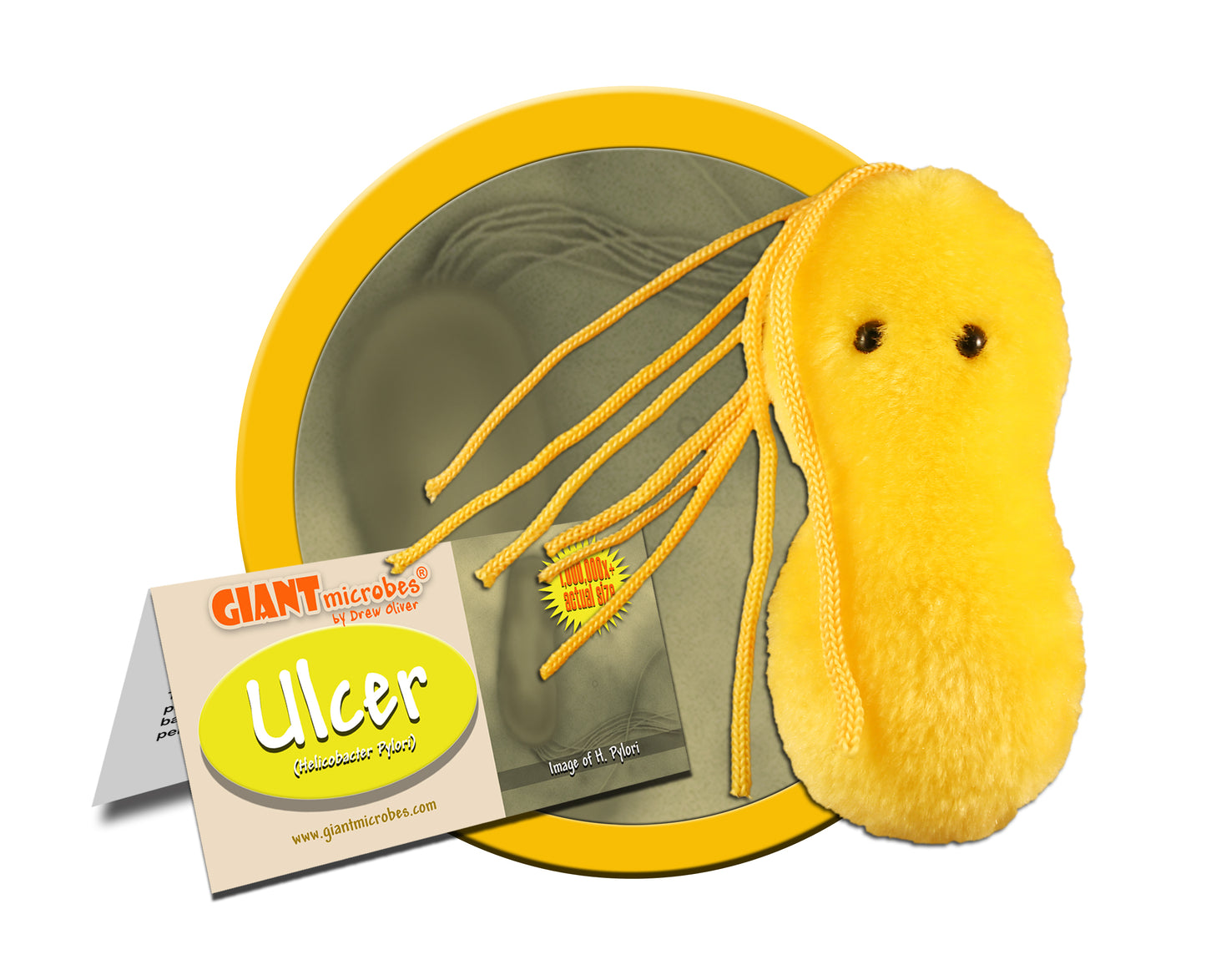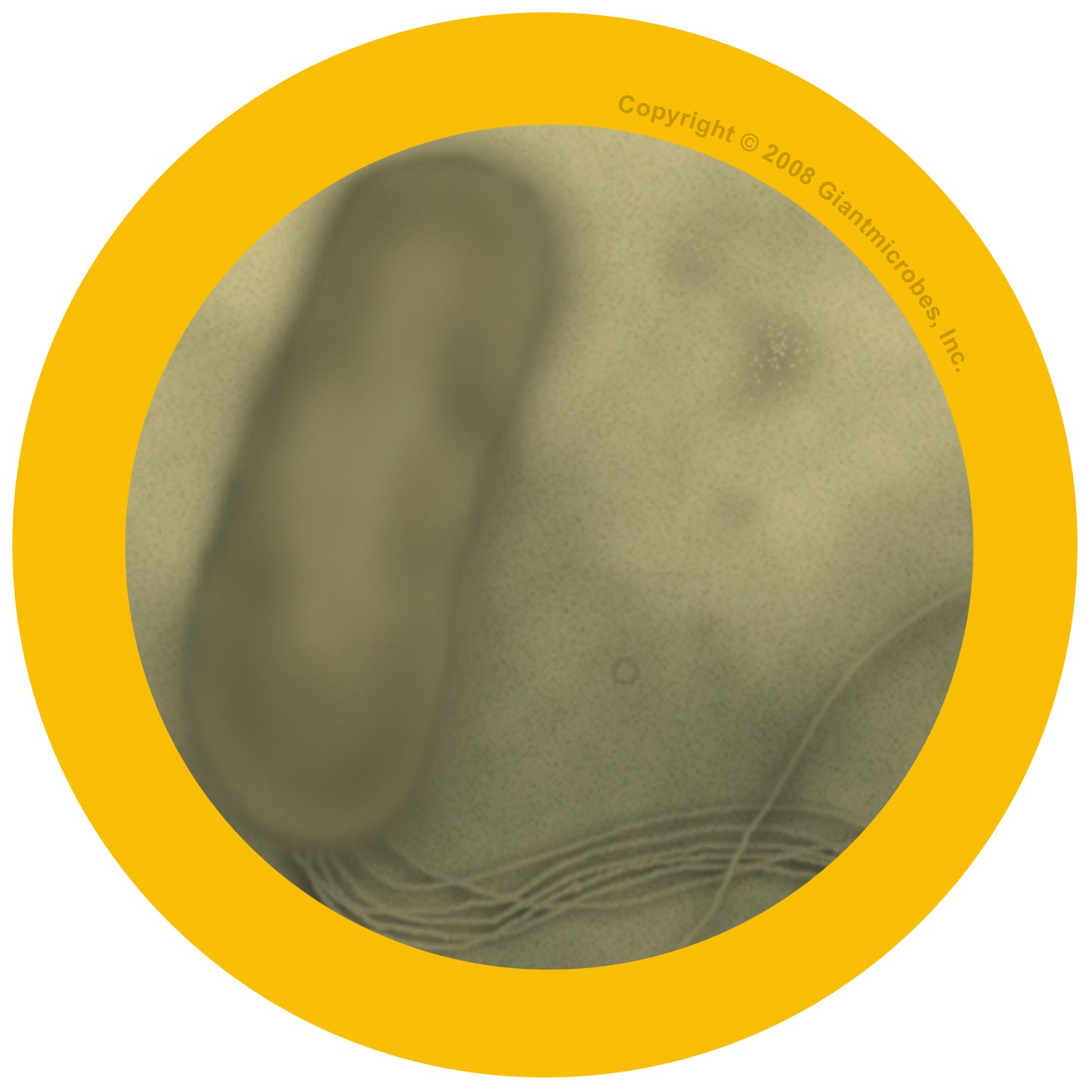Ulcer (Helicobacter Pylori)
Ulcer (Helicobacter Pylori)
Couldn't load pickup availability
- A subtle way of saying Relax
- Unique sympathy gift for ulcer sufferers
All About Ulcer (Helicobacter Pylori)
FACTS: For many years, stress and spicy foods were thought to be the root causes of ulcers (which are holes in the lining, or mucosa, of the stomach).
In 1983, however, Australian physicians Barry Marshall and Robin Warren implicated Helicobacter pylori bacteria as causing the condition. The medical establishment was skeptical until the good doctors took one for the team by ingesting the bacteria – and developing the gastritis inflammation that accompanies ulcers!
Researchers continue to believe that factors such as stress, diet, and heredity play a role in the development of ulcers, since 50% of the population is infected with H. pylori bacteria while only a small percentage have ulcers. Nevertheless, 90-95% of people with ulcers in the stomach, esophagus, and small intestine have the bacteria, and getting rid of the bacteria reduces ulcer recurrence rates to less than 10% per year.
The good news is that antibiotics can now be used to treat the painful condition that affects millions of people every year. The bad news is that there is still no easy cure for stress – except, perhaps, a long vacation to the land down under!
| NAME | The genus name, Helicobacter, stems from the Greek root, “helix” which describes the bacterium’s curvy shape. Pylori stems from the Greek root “pulouros” which means gatekeeper. This describes the opening between the stomach and the duodenum, where the ulcers form. |
|---|
| ACTUAL SIZE | H. pylori is an S-shaped bacterium about 0.5 x 5 micrometers. It has 5 to 7 tails on one end, called polar flagella. |
|---|
| WHERE IT LIVES | Peptic ulcers are painful sores that are found in the stomach or intestines. They can be caused by several things like stress, smoking, or an underlying disease. Most commonly, stomach ulcers are caused by bacteria called Helicobacter pylori. It spreads through contaminated water. |
|---|
| SYMPTOMS | Causes peptic ulcers, or wounds, inside the stomach and intestines. |
|---|
| CURE | Antibiotics to kill the bacteria and antacids to help the stomach lining heal. |
|---|
| HISTORY | First discovered in 1982 by two Australian researchers named Robin Warren and Barry Marshall. They won the Nobel Prize for Medicine in 2005! |
|---|
| FASCINATING FACTS | About 70% of people living in developing countries are infected with H. pylori and the majority of them don’t experience any symptoms. Famous people who had it: Former First Lady Barbara Bush was hospitalized for a perforated ulcer that was one centimeter big! That’s like a hole in your stomach big enough to fit a pencil! |
|---|






